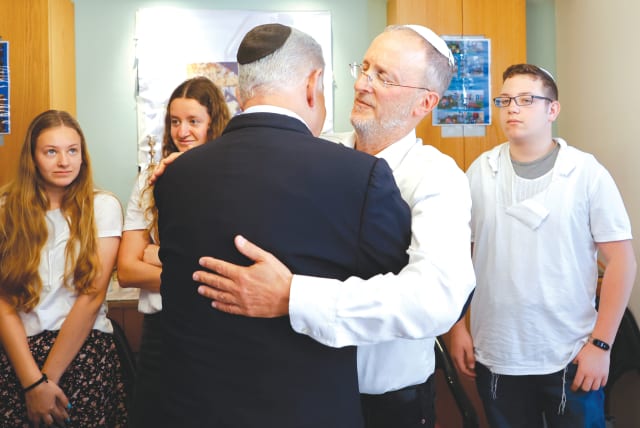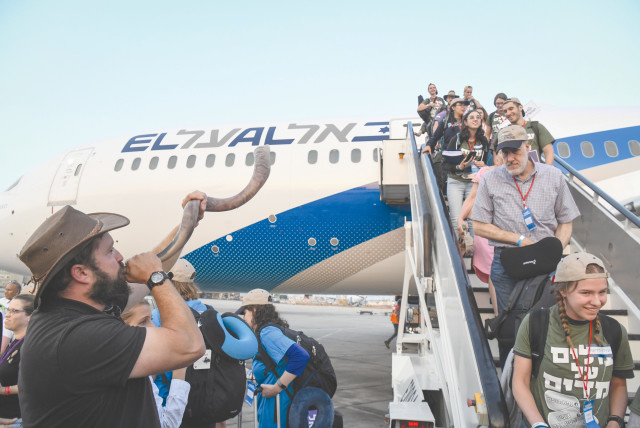Israeli Remembrance Day: Olim feel sense of mission and passion - opinion

As we approach our Remembrance Day for Israel’s Fallen and 75th Independence Day, the emotional journey of those two days represents our wider feelings during the entire year.
Every loss of life is painful. Every murder, every terror victim, every family destroyed is heartbreaking. In this country especially, we feel the loss of life of others as our own. We mourn as a nation.
When the two little sweet Paley boys from Ramot were murdered by a terrorist in February, only two months ago, I read a tweet by journalist Chaim Levinson that really stayed with me: “There is nothing more purely innocent than a haredi little boy.” This moved me deeply.
I could imagine the pure innocence of a boy untouched by the cynicism of social media, totally sheltered from the modern world and its perils, happy with a rudimentary toy or simply climbing a tree. These are the joys of a less complicated world when children were really children.
With the same pathos I wanted to express the idea that there is no one more hopeful and positive and enthusiastic than an oleh or olah moving to Israel, especially when it’s an immigration of pure choice and ideology. The fervor of the Zionist, the act of moving here – even for the nonobservant – is a spiritual experience.
The Zionist act of making aliyah is a spiritual experience and the excitement is contagious
Very few native-born Israelis who I have encountered since moving to Israel 22 years ago have been able to truly understand the excitement and sense of mission, love of our people, passion for Jewish autonomy and self-determination, and, in some cases religious purpose that an immigrant feels when moving to Israel. It’s the awe of being part of this historically national resurrection, the chain of generations.
The excitement of the olim by choice is contagious. They talk about it incessantly; they try to convince everyone to join them and they tell everyone that this is the best or only place for Jews.
When my husband and I moved here in March 2001 in the middle of the Second Intifada, many Israeli coworkers could not quite understand why we had chosen to move to Israel at a most dangerous time, when bombs were blowing up on a weekly basis. We were coming from relatively safe countries, we had good jobs and prospects. What were we thinking?
The Israelis working with me in the Jewish world would muse that they would never have the merit of having made aliyah, but they were the minority. Many simply believed we were mad. Move to Jerusalem in the middle of the second intifada – why?
I do not know the Dee family. As a British Jew who lived in London, we have mutual friends and acquaintances. As I write these lines with a knot in my throat, I can clearly picture the day they landed as olim; the palpable enthusiasm, positivity and excitement.
It’s about their new wonderful life in the Holy Land and the land of their ancestors, the better lives they were giving their children, to be free people in their homeland. That positivity even within an unimaginable tragedy still shines through Rabbi Dee’s inspirational words of unity and moral clarity during his beloved wife’s eulogy. However, the fact that they had to pay that price hurts me deeply.
As an avid reader of the history of our people, I am well aware that even with our internal and external troubles, we are in the best possible time in Jewish history, in control of our defense and destiny. But for many families in the last few months, the price has been simply unbearable.
As we approach our Remembrance Day for Israel’s Fallen and 75th Independence Day, the emotional journey of those two days represents our wider feelings during the entire year. It is the loss we feel for the sons and daughters who have been sacrificed in order for us to live here as Jews in our land and at the same time the joy and awe of the miracle that is the State of Israel.
In the case of olim, we feel the miracle of Israel daily and in the last month, we have felt the painful losses intensely.
The writer is deputy mayor of Jerusalem in charge of foreign relations.
Jerusalem Post Store
`; document.getElementById("linkPremium").innerHTML = cont; var divWithLink = document.getElementById("premium-link"); if (divWithLink !== null && divWithLink !== 'undefined') { divWithLink.style.border = "solid 1px #cb0f3e"; divWithLink.style.textAlign = "center"; divWithLink.style.marginBottom = "15px"; divWithLink.style.marginTop = "15px"; divWithLink.style.width = "100%"; divWithLink.style.backgroundColor = "#122952"; divWithLink.style.color = "#ffffff"; divWithLink.style.lineHeight = "1.5"; } } (function (v, i) { });

